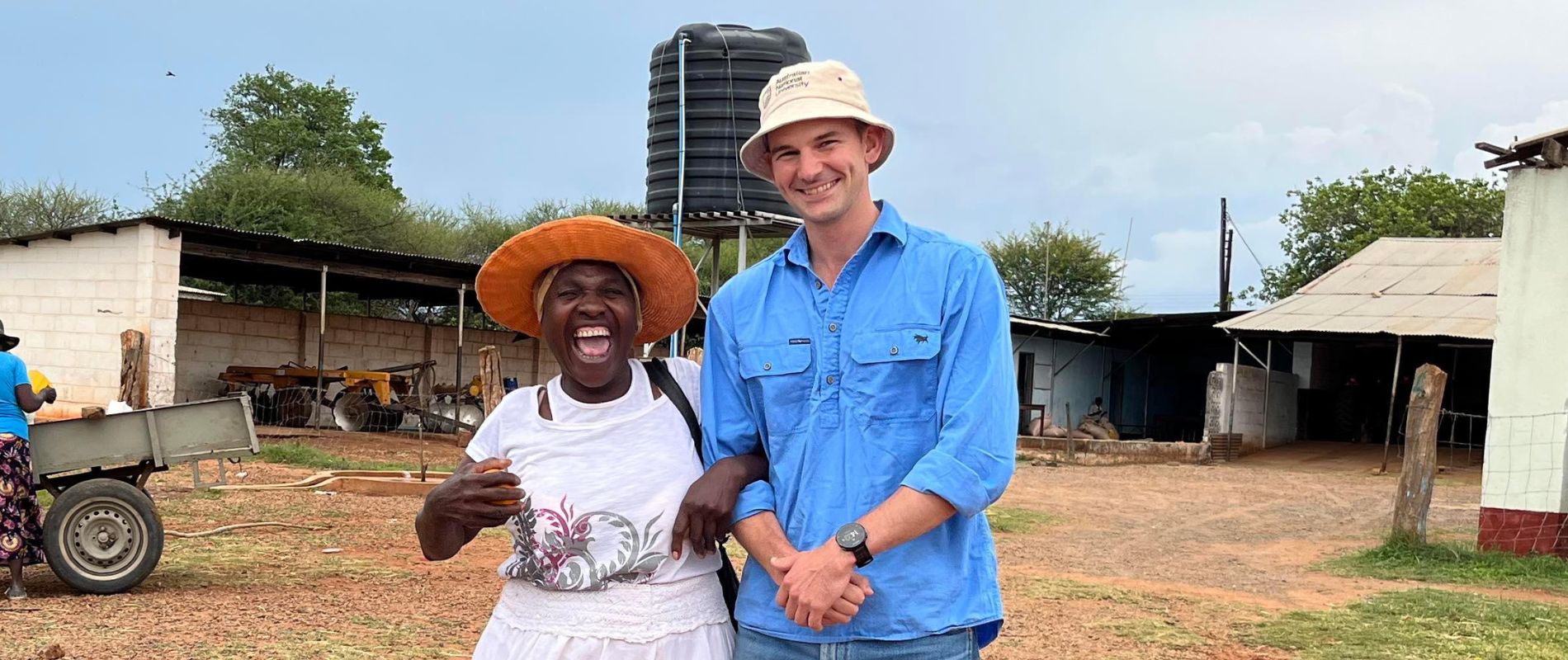When a new scholarship opportunity came through the School newsletter, Michael Wellington noticed it, as did his PhD supervisor.
“It’s a pretty boring story really – it was in one of those weekly Fenner School emails that came around, if I remember correctly. We thought, that kind of aligns with what we’re doing and thought it would be worth pursuing, and that’s how it all started.”
Michael Wellington is now the first graduate of the Digital Agriculture PhD Supplementary Scholarship, a scholarship offered by CEAT and funded by CSIRO’s Data61. The scholarship was created in 2020 to support outstanding ANU PhD candidates whose research focus was on a collaborative project between CSIRO and ANU in the field of information science relevant to agriculture.
Michael comes from a background in Agricultural Science, having completed his Honours at the University of Queensland before working as a farm consultant in Northern Australia. He started his PhD in 2020 with Professor James Pittock from the Fenner School of Environment and Society on ‘Transforming irrigation in Southern Africa project’, a project funded by the Australian Centre for International Agricultural Research (ACIAR).
His research involved using remote sensing and Earth observation technologies to map areas of irrigation in southern Africa, and then developing statistical and remote sensing methods to estimate water usage over time on the irrigated farms. They also monitored how crop production had changed at the irrigation schemes, looking at long term trends in crop productivity.
His PhD coincided with the COVID19 pandemic so he was unable to travel for data collection, and instead sourced all of the data he needed from open access sites which were populated using information from global satellites.
“So I couldn’t travel. And data collection was looking like it would be very difficult, so in a sense that necessitated the use of public data and gathering of open access information, but it ended up being a strength of the PhD I think.”
The scholarship funds helped pay for travel to Zimbabwe late last year when restrictions were eased, allowing him to visit some of the irrigation schemes and communicate findings to the institutions he had been working with.
A highlight of his trip was visiting one of the main irrigation schemes that was a focus of his project, the Silalabuhwa scheme in Zimbabwe.
“I’d been looking at this scheme on Google Earth for two and a half years on my computer, and then I finally got to go there and see it in real life, which was pretty cool.”
But the most valuable part of the scholarship was the opportunity it gave him to collaborate with CSIRO scientists.
“I got two supervisors from CSIRO, one from Agriculture & Food and one from Data61, which was the way that the program was designed. And they were both really good scientists and really committed supervisors.”
The relationship he built with them has continued, resulting not just in continued support in his research projects but in additional pieces of co-authored work, separate to the PhD work he has done at ANU.
Michael is now working for Geoscience Australia as Assistant Director for Digital Earth Africa, one of the open access sites he used for his PhD. “It’s a nice sense of continuity from my PhD, an opportunity to get some project management experience, and continue along with the science side of things as well.”
For students with typically non-agriculture backgrounds, Michael thinks there’s ample opportunity to apply these different skillsets to explore options in agriculture as well.
“You can come from any background and just come with an open mind. And learn from other people and other disciplines as you go.
“I think it’s a really good career choice for someone who wants to work across a lot of different domains.”
The next round of the CSIRO Data61 Digital Agriculture PhD Supplementary Scholarships are now open. To find out more and to submit an Expression of Interest, please go to the CEAT webpage.
EOIs close on 27 March 2023.
